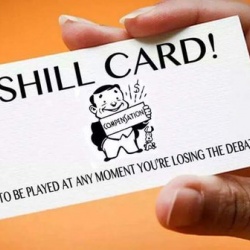Even though it was hypocritical - epidemiologists working for trial lawyers or environmental groups were recruited - few inside IARC objected. Nor did anyone think they might. Environmental groups have manufactured an ethical halo so well that even their lawyers look like better people than other lawyers. They are, they assure us, poorly paid evangelists for health and safety against Evil Corporations.
Except none of that is true. For that ethical halo to be punctured even slightly, someone like Tom Girardi, who turned the "Erin Brockovich" case, trace levels of hexavalent chromium in Hinckley, California, into hundreds of millions of dollars for himself, has to engage in such spectacular fraud it gets attention. And even then his environmental shakedowns are minimized, though they were the same tactics he used against Pacific Gas & Electric.
Environmentalism is a $3 billion a year industry - 200 times the size of the pro-science nonprofit community - and lawyers at Center for Biological Diversity, Natural Resources Defense Council, Environmental Defense Fund, Greenpeace, and all the rest are highly paid. They recruit the most prominent academics to their cause.
Forget journalistic darlings like Walter Willett or Dave Goulson, they are not well-respected even in their own fields. In every field except epidemiology, you know you are an elite in your discipline, when you can get paid to consult by a company. Companies only want the best. It was once a badge of honor, no differently than if a conference will pay for your plane ticket to attend a meeting as a speaker.
Epidemiologists and now food experts have allowed themselves to be boxed out of really making a difference by not standing up to the groups that play The Shill Card if they try to be part of the solution.

We let it happen because when it was always happening to someone else, it wasn't our fight. Now, progressive domination of both academia and journalism has meant that if you take a job consulting for industry, rather than carrying water for environmentalists at International Agency for Research on Cancer, National Institute of Environmental Health Sciences (NIEHS), or Ramazzini Institute panelists - the knives will come out. Every quote you give will have 'who consults for industry' attached to it. Every paper won't just have Reviewer #2 nonsense, it may simply not be considered at journals where editors are more interested in being part of an ideology tribe than a science one.
That Cancel Culture has created an "icy chill" in science. It prevents the best minds from helping out companies, even though companies are the public face of science.
We can't opt out of food, that is why we should want the best people working on it. Yet that is the market where the best people are unlikely to be willing to work with companies - the political blowback is too severe. Because we let it happen one attacked scientist at a time.
Now, i you consult for a company and are in academia, the Democratic party operatives at Sourcewatch will recruit someone to write a blog post written about you, and at least one journalist at Mother Jones will write an article claiming you must be bought off.
It is exactly the opposite. Unlike environmental groups, the pro-science side and corporations are too ethical to engage in that sort of behavior. Any researcher who defies activists will get harassed with phone calls, emails, FOIA requests, social media harassment, and demands that their employer fire them while academics are so politically allied even they often concede their own friends may have been doing something wrong if they consulted for industry.
Yes, fellow academics are least likely to stand up for science against smear campaigns against other academics. Only if it happens to them will they suddenly want to rally the community to the cause of justice.
Environmental marketing departments leverage this, so they cut scientists off from the herd and then surround them with knives. It works. Though government and industry and the public need trusted guides more than ever, most in health and nutrition won't have a discussion with industry at all. Perception sells.
That's bad for science and it is a cultural weakness that people opt out of being part of a positive solution. Because they don't want to lose their tribe.





Comments